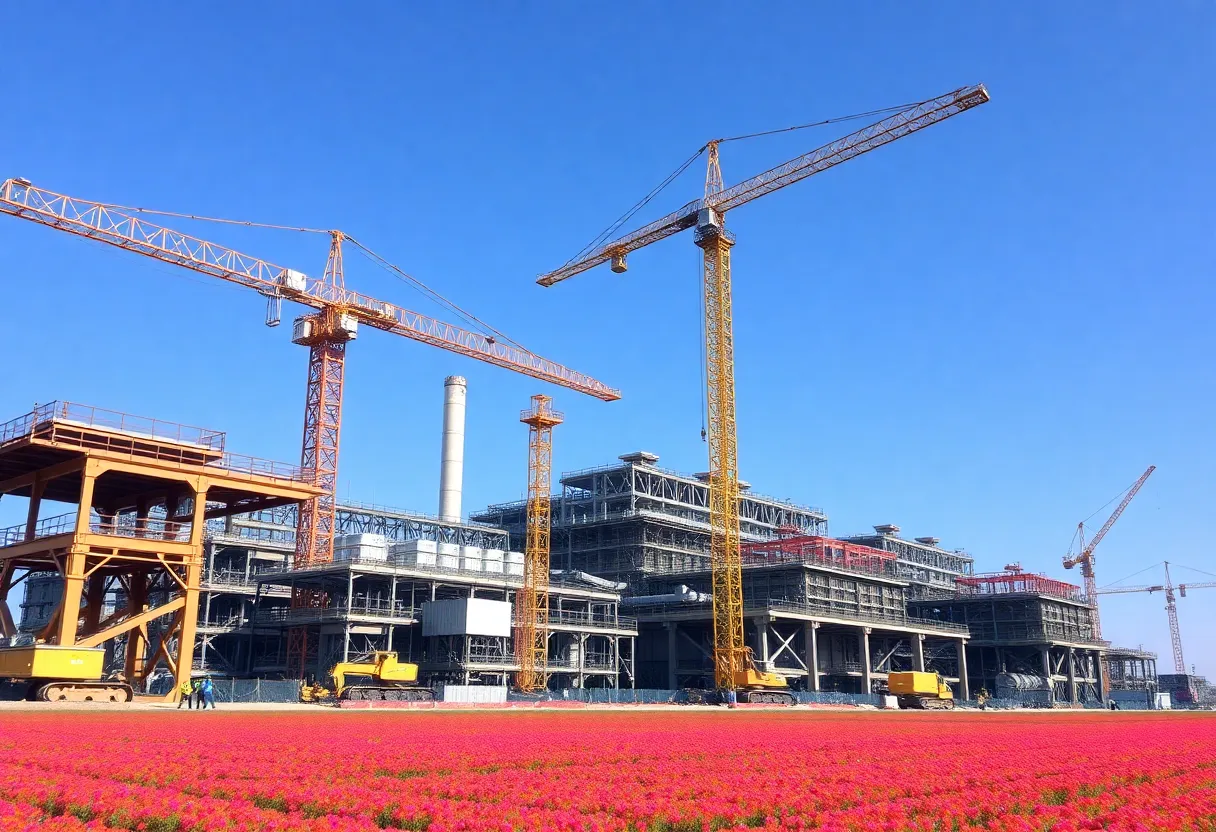News Summary
Texas businesses are grappling with the fallout of escalating U.S.-China trade tensions, with significant impacts across various industries. Companies like Ford face immense challenges due to record recalls, while Tesla races ahead with plans for a robotaxi rollout amid regulatory scrutiny. Retailers anticipate $24 billion in online sales despite consumer concerns about rising costs from tariffs. Delta Airlines has devised strategies to evade tariffs, yet the aviation sector faces a steep trade deficit. Meanwhile, food and beverage companies struggle under financial pressures, reflecting a broader economic struggle that highlights Texans’ resilience amid uncertainty.
State: United States
U.S.-China trade tensions are escalating with the U.S. set to impose a new round of tariffs that could reach as high as 35% on various goods. This move comes as stocks plummet in response to the increasing strain between the two economic powerhouses. The ramifications of the ongoing tariff battles are prompting companies and consumers alike to brace for significant economic impacts.
In a wider context, President Trump recently announced tariffs of 25% on all South Korean goods, which may influence pricing for K-pop merchandise among other items. Additionally, a notable 50% tariff increase on imports from Brazil is likely to accelerate already rising tensions between the two countries. Tariffs of 30% on imports from Mexico and the European Union heighten concerns regarding affected sectors.
Major companies across various industries are reporting profit squeezes directly attributable to these tariff increases. Many of these businesses are considering price hikes as they adjust to the increased cost of imports. Retailers are anticipating a surge of up to $24 billion in online spending this year’s Prime Day, but have also noted shifts in consumer spending habits, with shoppers expressing heightened concern over costs driven by tariffs.
The travel sector is feeling the heat as well, with an annual trade deficit of $50 billion recorded in this area. This figure is in stark contrast to a $3.5 billion surplus reported in 2022. Airlines like Delta are adjusting their operational strategies to counteract these economic pressures by reallocating engines from new European jets to grounded U.S. planes, aiming to minimize the financial impact of tariffs.
On the automotive front, Ford has made headlines by recalling more vehicles in 2025 than any other car company on record, which may reflect the broader industry’s struggles amidst economic uncertainty. Tesla is also amid noteworthy developments, planning to hold its annual shareholder meeting on November 6 due to investor pressures, while simultaneously increasing its robotaxi rollout despite ongoing regulatory investigations in Austin.
In the pharmaceutical sphere, GLP-1 drugs like Ozempic are projected to dominate the market, outpacing even longstanding treatments such as statins. Similarly, Hims & Hers is experiencing sharp declines in its stock prices after the termination of its agreement with Novo Nordisk concerning its compounded weight loss drugs, placing the company under financial stress as it focuses on navigating the pressures imposed by the pharmaceutical landscape.
Consumer goods manufacturers such as Constellation Brands are reporting declining sales linked to financial concerns from consumers in today’s challenging economic climate. In the food sector, Krispy Kreme has decided to withdraw its doughnuts from McDonald’s due to financial pressures stemming from their collaboration.
Among other notable trends, investment firms including Carlyle, KKR, Hillhouse, and Centurium are competing for a stake in a coffee giant’s China unit, underscoring the continued interest in robust markets despite tariff tensions. Honeywell has introduced new technology to enhance safety in aviation operations, including monitoring tools for altitude and speed to mitigate runway incidents.
In response to global health concerns, an agency is seeking to raise $1 trillion through increased taxes on alcohol, tobacco, and sugary drinks, reflecting a shift in regulatory priorities. Meanwhile, a federal panel has introduced uncertainty regarding vaccine makers due to a growing anti-vaccine stance, potentially impacting public health initiatives and company fortunes.
As tensions with China and other countries continue to rise, the broader implications of these trade disputes are beginning to unfold, affecting various sectors from travel to automobiles and pharmaceuticals. Companies are left to adapt to the new economic landscape while consumers navigate the adjustments in pricing and availability of goods.
Deeper Dive: News & Info About This Topic
- Ainvest: Criteo at Strategic Crossroads
- Wikipedia: Trade War
- Scripps News: Trade Tensions Escalate
- Google Search: Trade Tensions
- ABC News: Trump’s New Tariffs
- Encyclopedia Britannica: Tariff
- Reuters: Dollar Rises Amid New Tariffs
- Google News: New Tariffs
- WIONews: Trump Threatens New Tariffs
Author: STAFF HERE GEORGETOWN
The GEORGETOWN STAFF WRITER represents the experienced team at HEREgeorgetown.com, your go-to source for actionable local news and information in Georgetown, Williamson County, and beyond. Specializing in "news you can use," we cover essential topics like product reviews for personal and business needs, local business directories, politics, real estate trends, neighborhood insights, and state news affecting the area—with deep expertise drawn from years of dedicated reporting and strong community input, including local press releases and business updates. We deliver top reporting on high-value events such as the Red Poppy Festival, Georgetown Swirl, and Christmas Stroll. Our coverage extends to key organizations like the Georgetown Chamber of Commerce and the Downtown Georgetown Association, plus leading businesses in manufacturing and tourism that power the local economy such as local wineries and historic downtown shops. As part of the broader HERE network, including HEREaustin.com, HEREcollegestation.com, HEREdallas.com, HEREhouston.com, HEREgeorgetown.com, and HEREsanantonio.com, we provide comprehensive, credible insights into Texas's dynamic landscape.






